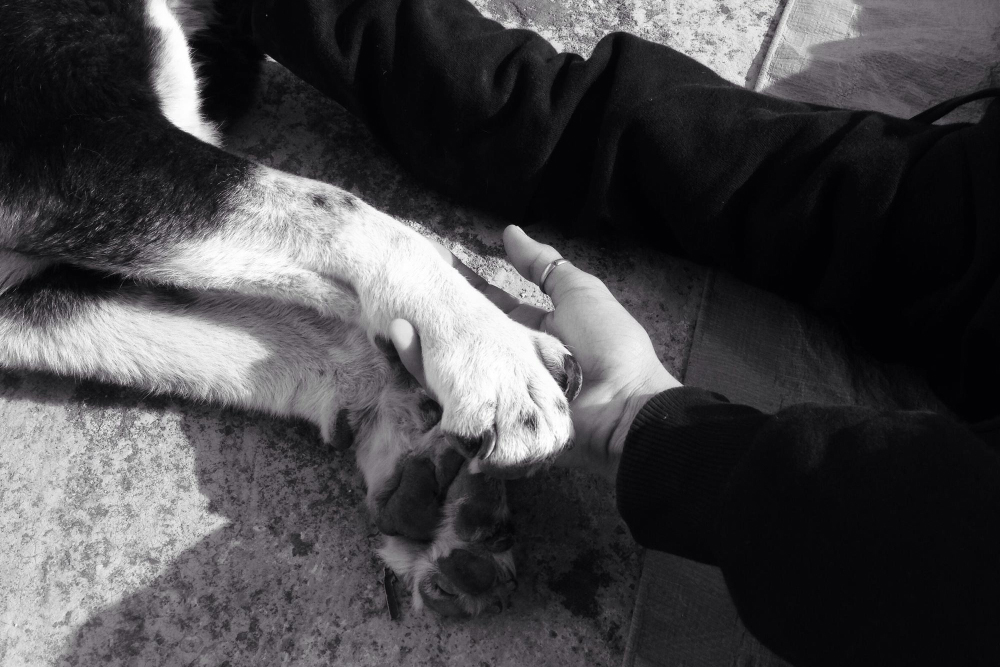When Hearts Break: Finding Support After Pet Loss

When Hearts Break: Finding Support After Pet Loss

Losing a beloved pet feels like losing a family member—because that's exactly what it is. The unconditional love, daily routines, and countless memories shared with your furry, feathered, or scaled companion create bonds that run deeper than many people understand. When that relationship ends, whether through old age, illness, or the difficult decision for in-home euthanasia, the grief that follows is real, valid, and deserving of support.
Pet loss grief often catches people off guard with its intensity. One moment you're reaching for the leash or opening a can of food out of habit, the next you're reminded that your companion is no longer there. This emotional journey requires time, patience, and often, external support to navigate.
The path through pet loss isn't linear, and there's no "right" timeline for healing. Some days will feel manageable, others overwhelming. Understanding this process and knowing where to find help can make the difference between suffering alone and finding your way through grief with compassion and community support.
Understanding Pet Loss Grief
Pet loss grief mirrors human bereavement in many ways, complete with stages that may include denial, anger, bargaining, depression, and acceptance. However, pet grief carries unique challenges that can make the healing process more complex.
Society doesn't always recognize the depth of human-animal bonds. Well-meaning friends might suggest "getting another pet right away" or minimize your loss with comments like "it was just a dog." These responses, while often intended to help, can leave grieving pet owners feeling isolated and misunderstood.
The daily reminders of your pet's absence can trigger waves of sadness when you least expect them. Empty food bowls, favorite toys, or the spot where they used to sleep become painful reminders. This is particularly true when you've made the difficult decision for in-home euthanasia in Jupiter, FL, where familiar surroundings hold even more memories.
Guilt often accompanies pet loss, especially when euthanasia was involved. Questions like "Did I wait too long?" or "Should I have tried another treatment?" can consume your thoughts. These feelings are normal parts of the grieving process, but they don't have to be faced alone.
Professional Support Options
Pet Loss Counselors and Therapists
Specialized pet loss counselors understand the unique aspects of human-animal grief. These professionals can help you process complex emotions, work through guilt, and develop healthy coping strategies. Many offer both individual and group sessions, allowing you to choose the format that feels most comfortable.
Licensed therapists who specialize in grief and loss can also provide valuable support. They help normalize your experience while offering tools to manage overwhelming emotions and navigate daily life during the acute phase of grief.
Veterinary Social Workers
Some veterinary practices employ social workers who specialize in the human-animal bond. These professionals can provide support before, during, and after difficult decisions like euthanasia. They understand both the medical aspects of pet care and the emotional impact of loss.
Online Counseling Platforms
Digital therapy platforms now offer specialized pet loss support, making professional help more accessible. These services can be particularly valuable for those in smaller communities where specialized pet grief counseling might not be readily available.
Support Groups and Communities
Local Pet Loss Support Groups
Many communities host in-person support groups specifically for pet loss. These gatherings provide safe spaces to share memories, express grief, and connect with others who understand your experience. Local animal hospitals, pet crematoriums, and community centers often host or can provide information about these groups.
Online Support Communities
Digital communities offer 24/7 support and connection with pet owners worldwide who understand your loss. Forums, Facebook groups, and specialized websites provide platforms to share stories, seek advice, and find comfort in knowing you're not alone.
The Rainbow Bridge communities are particularly popular, named after the poem that envisions a place where beloved pets wait for their owners. These online spaces allow for sharing photos, memories, and ongoing support throughout the grieving process.
Workplace and Educational Support
Some employers now recognize pet loss as a legitimate reason for bereavement leave or mental health support. Educational institutions may also offer counseling services that address pet loss. Don't hesitate to reach out to human resources or student services to ask about available resources.
Self-Care and Coping Strategies
Creating Memorial Practices
Honoring your pet's memory can provide comfort and help process grief. Consider creating a photo album, planting a garden in their honor, or making a donation to an animal shelter in their name. Some families choose to create memorial stones or commission artwork celebrating their pet's life.
Maintaining Routines While Adapting
Losing a pet disrupts daily routines that may have revolved around feeding, walking, or caring for your companion. While it's important to eventually adapt these routines, don't rush to eliminate all reminders immediately. Gradual changes often feel more manageable.
Physical and Emotional Self-Care
Grief can be physically exhausting. Prioritize sleep, nutrition, and gentle exercise during this difficult time. Consider practices like meditation, journaling, or spending time in nature to support emotional healing.
Deciding About Future Pets
There's no universal right time to consider another pet. Some people find comfort in providing a home for another animal relatively quickly, while others need months or years before feeling ready. Trust your instincts and don't let others pressure you into any timeline that doesn't feel right.
Resources for Children and Families
When pets are family members, their loss affects everyone, including children who may be experiencing death for the first time. Age-appropriate books about pet loss can help children understand and process their feelings. Family counseling sessions can provide tools for supporting each family member's unique grief experience.
Schools often have counselors trained in helping children cope with loss. Don't hesitate to inform teachers and school staff about your family's pet loss, as children's grief may affect their academic performance or behavior temporarily.
Moving Forward With Love and Memories
Healing from pet loss doesn't mean forgetting your beloved companion or "getting over" their death. Instead, it involves learning to carry their memory in a way that brings more comfort than pain. This process takes time and often benefits from professional guidance and community support.
The decision for in-home euthanasia, while difficult, is often a final act of love that prevents suffering. Many pet owners find comfort in knowing their companion spent their final moments surrounded by family in familiar surroundings rather than in a clinical setting.
Finding Your Path to Healing
Grief is as individual as the pets we love, and there's no single path through the healing process. Some people benefit most from professional counseling, others find solace in support groups, and many discover that a combination of resources provides the most comprehensive support.
The key is recognizing that your grief matters and that support is available. Whether you're preparing for a difficult decision, recently experienced a loss, or are still processing grief from months or years ago, reaching out for help is a sign of strength, not weakness.
If you're considering in-home euthanasia in Jupiter, FL, contact Rover Veterinary Care today for more information. Their compassionate team understands the difficulty of these decisions and can provide both medical care and emotional support during this challenging time.
